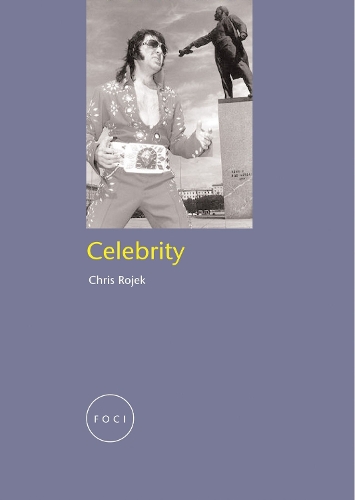
Celebrity
(Paperback)
Publishing Details
Celebrity
By (Author) Chris Rojek
Reaktion Books
Reaktion Books
1st September 2001
United Kingdom
Classifications
Tertiary Education
Non Fiction
History of ideas
Popular music
Music of film and stage
306
Physical Properties
Paperback
208
Width 210mm, Height 148mm
Description
Why aren't we all famous Why do we desire and respect celebrities we have never met Bard Pitt, Johnny Depp, Britney Spears and Janet Jackson are icons of popular culture and objects of desire for millions but, paradoxically, an essential feature of their popularity is their remoteness from our more ordinary world. Celebrities are everywhere, and nowhere. In this book, the author examines the meaning of celebrity. Drawing on a wide gallery of celebrities, from O.J. Simpson, Marilyn Monroe, David Bowie and Kurt Cobain to such notorious figures as Timothy McVeigh, Ted Bundy and the Soho bomber, David Copeland, he explores the friction between the public face of the celebrity and the celebrity's actual self. He argues that "ascribed" celebrity, which derives from bloodline, has been comprehensively replaced by "achieved" celebrity, the result of personal achievement, and he situates this development in the emergence of public life as a distinct sphere of society.
Reviews
According to a brief but brilliant new book by the British sociologist Chris Rojek, democracy (or capitalism) simply cannot operate properly without celebrity ... Rojek's most original insight is that people have been wanting this ever since the 18th century. He brilliantly rereads Samuel Smiles's Self-Help as a manual on the virtues of the celebrity. The Independent Rojek ranges widely across celebrity culture ... His feel for the topic means that these necessarily bite-sized snippets of the famously famous reveal a shewdly evaluative aesthetic at work, and his critical sense is infallibly strong. The result is a delightful social history of fame - a mix of cultural studies and social theory - that works very well. The Australian illuminating ... New Statesman
Author Bio
Chris Rojek is Professor of Sociology at Brunel University. He is the author of Brit-Myth: Who Do the British Think They Are (Reaktion, 2007).
